Within the context of the OAIC’s overall mission, the Pilot and Exploratory Studies Core (PESC) aims to provide catalytic support – seed funding, core support, and mentorship – for innovative pilot research projects that generate data on the mechanisms of FPT action to facilitate more definitive mechanistic studies, feasibility data to guide efficacy trials, hypothesis generating or proof-of-concept exploratory studies and retrospective analysis of existing epidemiologic data that inform FPT interventions.
Director
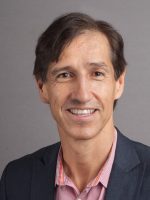
Monty Montano, PhD
Brigham and Women’s Hospital
Harvard Medical School
- Principal Investigator, Harvard Medical School
- Scientific Director, Boston Claude D. Pepper Older Americans Independence Center
Monty Montano PhD is a Principal Investigator at Harvard Medical School and the Scientific Director of the Boston Pepper Center. Dr. Montano received a Ph.D. in Genetics from Stanford University School of Medicine and did his postdoctoral work at the Harvard School of Public Health. He conducts international translational research on aging, musculoskeletal regeneration, and chronic HIV infection. Dr. Montano is the principal investigator of an NIH-sponsored 5-year study to comprehensively evaluate physical function and muscle maintenance in older individuals with HIV infection on effective therapy compared to age-matched uninfected individuals. Dr. Montano is a chartered member of the National Institutes of Health Center for Scientific Review and he is the author of a book on translational medicine entitled, “Translational Biology in Medicine: Models from Aging, Muscle Regeneration and Infection.”
Representative Papers
Atypical Skeletal Muscle Profiles in HIV+ Asymptomatic Middle-Aged Adults.
Biomarker signatures of aging.
BET bromodomain inhibition as a novel strategy for reactivation of HIV-1.
Premature expression of a muscle fibrosis axis in chronic HIV infection.
Age and Sex Distributions of Age-Related Biomarker Values in Healthy Older Adults from the Long Life Family Study.
Co-Director
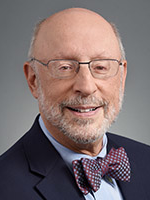
Douglas P. Kiel, MD, MPH
Marcus Institute for Aging Research
Hebrew SeniorLife
Harvard Medical School
- Professor of Medicine, Harvard Medical School
- Director, Musculoskeletal Research Center, Hebrew SeniorLife
- Associate Member, Broad Institute of Harvard and MIT
Dr. Kiel’s research focuses on the epidemiology of osteoporosis and related fractures, including lifestyle factors, biomarkers, and genetic factors. He is also interested in sarcopenia and its consequences, including falls and disability. He also has conducted multiple clinical trials targeting the musculoskeletal system. He leads the Framingham Osteoporosis Study, and serves in leadership roles for many organizations including the NIH, American Society for Bone and Mineral Research, National Osteoporosis Foundation, and the Joint Commission.
Previous PESC Trainees

Jason Sanders, MD, PhD
- Clinical Fellow, Pulmonary and Critical Care Medicine, Brigham and Women’s Hospital, Harvard Medical School
Training/Education: Dr. Sanders obtained his MD and PhD (epidemiology) from the University of Pittsburgh. His graduate work focused on developing and validating biomarkers of aging for use in human observational and interventional studies. He completed two years of clinical training in emergency medicine at the Harvard Affiliated Emergency Medicine Residency at Massachusetts General Hospital (MGH) and Brigham and Women’s Hospital (BWH), followed by an internal medicine residency at MGH, and fellowships in pulmonology and critical care medicine at Brigham and Women’s Hospital. He is a research fellow at Harvard Medical School and continues to practice pulmonology and critical care medicine.
Research Interests: Aging epidemiology, biomarkers of aging and longevity, geroscience, idiopathic pulmonary fibrosis.
Research Project (PESC): Senescence in the development and progression of early pulmonary fibrosis in older adults.
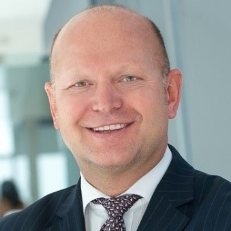
Stefan Tullius, MD, PhD
- Chief, Division of Transplant Surgery, Brigham and Women’s Hospital
- Director, Transplant Surgery Research Laboratory, Brigham and Women’s Hospital
- Professor of Surgery, Harvard Medical School
Training/Education: Dr. Tullius received his MD from the Johann-Wolfgang Goethe University in Frankfurt/Main, Germany, a PhD from the Charité in Berlin, Germany, and a (honorary) Master of Arts from Harvard University. While in medical school, he did a surgical rotation at Harvard Medical School, which brought him in contact with Dr. Nicholas Tilney, former Francis D. Moore Professor in Surgery, emeritus, and, at the time, Director of the Surgical Research Laboratory/HMS, and Chief of Renal Transplantation at Brigham and Women’s Hospital. After finishing his internship in Germany, he returned to BWH/HMS, where he was a research fellow in the Surgical Research Laboratory, pursuing his interest in transplant immunology. During that time, he contributed with internationally-recognized experimental data serving as the basis of the concept that organ quality and injury determine chronic allograft nephropathy and outcome after transplantation. He returned to Germany to complete his residency in general surgery, followed by a fellowship in visceral surgery, while at the same time, completed his PhD.
Research Interests: Dr. Tullius’ clinical interests focus on kidney/pancreas transplantation, the treatment of older transplant patients, individualized immunosuppression, and an optimized utilization of organs for transplantation including those from older donors. Dr. Tullius has also contributed with pioneering work in face, hand and uterus transplantation. His research laboratory has focused on the understanding of immunosenescence and organ age, obesity and alloimmunity, and the effects of organ quality on transplant outcome. His research on donor and recipient age has helped to pave the way for numerous clinical studies striving to reduce the consequences of organ damage either as donor, peri-operative, or short-term recipient treatment.
Research Project (PESC): Senescent cells from organs of older donors are transferred during transplantation and impair the physical exercise capacity of recipients.
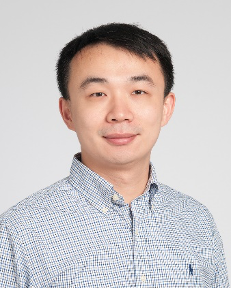
Hao Zhou, MD, PhD
- Research Investigator, Division of Transplant Surgery, Brigham and Women’s Hospital/Harvard Medical School
Training/Education: Dr. Zhou received his MD degree from Tianjin Medical University, China and PhD degree in biology from Cleveland State University. During his doctoral work, Dr. Zhou identified IRAKM as a positive signaling mediator for Toll-like receptor/Interleukin 1 receptor-induced NFB activation. He then completed his post-doctoral fellowship in the Department of Inflammation and Immunity, Lerner Research Institute, Cleveland Clinic under the mentorship of Dr. Xiaoxia Li, and was promoted to Research Associate. In Cleveland, Dr. Zhou’s work focused on the role of inflammation in metabolic disorders. He has joined the faculty of the Department of Surgery, Division of Transplant Surgery, with a current research focus on immunosenescence and the effects of aging on alloimmunity
Research Interests: Dr. Zhou’s research is focused on the impacts of age-dependent immune cell metabolism and the spreading of senescent cells with organ transplantation.
Research Project (PESC): Donor and recipient age mismatches in organ transplantation transfer senescent cells impacting physical exercise capacity.
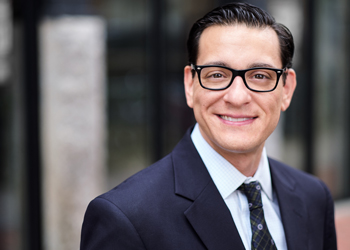
Sari Reisner, ScD
- Assistant Professor of Medicine, Brigham and Women’s Hospital, Harvard Medical School
- Assistant Professor, Department of Epidemiology, Harvard T.H. Chan School of Public Health
Training/Education: Dr. Reisner is an Assistant Professor of Medicine at Harvard Medical School, Assistant Professor of Epidemiology at Harvard T.H. Chan School of Public Health, and an Affiliated Research Scientist at The Fenway Institute at Fenway Health.
Research Interests: Dr. Reisner leads a global portfolio of community-based transgender health research. Trained as a social and psychiatric epidemiologist, his research focuses on health disparities and inequities with lesbian, gay, bisexual, transgender (LGBT) populations, specializing in transgender and gender nonconforming health.
Research Project (PESC): Stress-driven acceleration of epigenetic age and inflammation in transgender adults.
Previous PESC Trainees
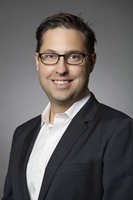
Ronald L. Neppl, PhD
- Assistant Professor of Orthopedic Surgery, Brigham and Women’s Hospital, Harvard Medical School
Training/Education: Dr. Neppl received his B.S. and M.S. in Biomedical Engineering from Marquette University. He then worked in industry for a few years before returning to academia. He received his Ph.D. from the University of Virginia in Biophysics, where under the mentorship of Drs. Andrew and Avril Somlyo, he studied signal transduction in vascular smooth muscle. For his postdoctoral research, he then joined the laboratory of Dr. Da-Zhi Wang at Boston Children’s Hospital where he focused on studying the roles of microRNAs and novel proteins that modulate the activity of the RNA Induced Silencing Complex in cardiac and skeletal muscle. He then moved to the laboratory of Dr. Kenneth Walsh and focused on long non-coding RNAs that modulate skeletal muscle growth processes before joining the faculty in the Department of Orthopedic Surgery at Brigham and Women’s Hospital.
Research Interests: Our laboratory is focused on the molecular regulation of skeletal muscle homeostasis in health and disease. Our overarching goal is to understand how non-coding RNAs control the essential processes of myogenesis and hypertrophic growth, and how perturbations in these processes may lead to a disease state resulting in muscle atrophy. Using traditional biochemical and molecular biology techniques, in vivo and in vitro model systems, ChIP-seq, as well as next generation RNA sequencing, we seek to understand the molecular and biological roles these non-coding RNAs play in regulating the age-dependent changes in gene expression underlying the progressive loss of muscle mass and strength associated with advancing age.
Research Project (PESC): Loss of a lncRNA exacerbates aging associated functional decline of skeletal muscle.
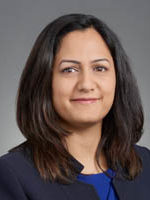
Shivani Sahni, PhD, MS
- Director, Nutrition Program and Associate Scientist, Hinda and Arthur Marcus Institute for Aging Research
- Assistant Professor of Medicine, Beth Israel Deaconess Medical Center, Harvard Medical School
Training/Education: Dr. Sahni received her M.S. and Ph.D. degrees in Nutritional Epidemiology from Tufts University School of Nutrition, Boston. During her doctoral work Dr. Sahni determined the role of dietary antioxidants upon age-related osteoporosis and consequent fractures in older men and women from the Framingham Osteoporosis Study. She then completed her post-doctoral fellowship in nutrition and musculoskeletal aging at the Institute for Aging Research, Hebrew SeniorLife and Harvard Medical School. Dr. Sahni also holds a Bachelor’s and a Master’s degree in Dietetics from Delhi University, India.
Research Interests: Dr. Sahni is a Nutritional Epidemiologist interested in determining the role of nutritional factors in the prevention of chronic diseases of aging. She is specifically interested in determining the role of diet and nutrition in age-related osteoporosis, sarcopenia, frailty, and loss of physical function.
Research Project (PESC): Mediterranean diet, related antioxidants and frailty.

Rajan Singh, PhD
- Associate Professor of Medicine, Department of Obstetrics and Gynecology at David Geffen School of Medicine at UCLA and Division of Endocrinology and Metabolism at Charles R. Drew University of Medicine
- Research Scientist, Brigham and Women’s Hospital
Training /Education: Dr. Singh received his M.S in Biochemistry from Kolkata University and PhD in Molecular Biology from Jadavpur University. He joined UCLA School of Medicine for his post-doctoral training in specific areas of hormonal regulation of cell metabolism and signal transduction pathways related to cell fate determination.
Research Interests: Dr. Singh has long standing interest and research experience in specific areas of androgen biology and aging research. For last 16 years of his independent career, Dr. Singh has been interested in delineating the molecular mechanism of androgen action on muscle and fat mass. His initial research work led to the identification of follistatin (Fst) as a novel target of androgen action via activation of Wnt/β-catenin signaling pathway, and subsequent identification of anabolic pathways that are differentially responsive to testosterone action in muscle and prostate tissues. His laboratory also identified a novel role of follistatin in regulating brown adipose metabolism and currently focused on investigating the cellular targets of follistatin responsible for the regulation of lipid and energy homeostasis, and determine the molecular mechanisms that participate in the pro-browning and anti-atherogenic properties of follistatin.
Research Project (PESC): Mechanistic basis of differential regulation of polyamine pathway by testosterone in the prostate and androgen-responsive skeletal muscle.
Previous PESC Trainees
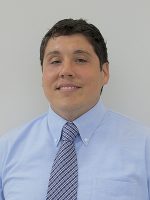
Donato Rivas, PhD
- Scientist II and Adjunct Instructor
Training/Education: PhD in Biomedical Science (Bioenergetics)
Research Interests: The role of substrates on cellular signaling pathways controlling skeletal muscle metabolism and growth; and how nutrition, aging and exercise contribute to alterations in skeletal muscle energy homeostasis.
Research Project (REC or PESC): Circulating microRNA as novel predictors of skeletal muscle anabolic response in aged humans.
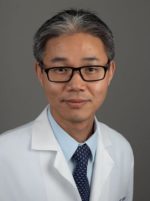
Dae Kim, MD, MPH, ScD
- Associate Professor of Medicine, Harvard Medical School
- Assistant Scientist II, Hinda and Arthur Marcus Institute for Aging Research, Hebrew SeniorLife
- Division of Gerontology, Beth Israel Deaconess Medical Center
- Division of Pharmacoepidemiology and Pharmacoeconomics, Brigham and Women’s Hospital
Training/Education: Dr. Kim is a geriatrician and clinical investigator in the Marcus Institute for Aging Research, Hebrew SeniorLife; Division of Gerontology at the Beth Israel Deaconess Medical Center; and Division of Pharmacoepidemiology at the Brigham and Women’s Hospital. He received M.D. from Yonsei University in 2001, Master of Public Health from the Johns Hopkins School of Public Health in 2004, and Doctor of Science in Epidemiology from Harvard School of Public Health in 2014. He completed internal medicine residency training at Thomas Jefferson University Hospital and geriatric medicine fellowship at Beth Israel Deaconess Medical Center/Harvard Medical School. As a geriatrician, Dr. Kim specializes in preoperative frailty assessment and decision-making in older patients undergoing transcatheter aortic valve replacement. His current research includes measurement of frailty in Medicare claims data, evaluation of drug effectiveness and safety in older populations, and preoperative frailty assessment to predict functional outcomes after cardiac surgical procedures. In this research-in-progress meeting, he will present an update on his ongoing research about measuring frailty in Medicare data.
Research Interests: Improving clinical and functional outcomes of aging populations through judicious use of drugs and interventions.
Research Project (REC or PESC): Home-based exercise in patients underoing AVR.
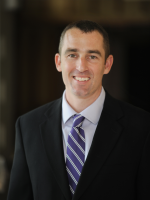
Bradley Manor, PhD
- Director, “Mobility and Brain Function” Research Program, Hebrew SeniorLife’s Institute for Aging Research
- Assistant Professor of Medicine, Harvard Medical School
Training/Education: Dr. Manor received his B.S in Kinesiology as well as his M.S in Biomechanics from the University of Toledo. He later attended Lousiana State University where he received a Ph.D. in Biomechanics. Dr. Manor also performed a post-doctoral fellowship at the Beth Israel Deaconess Medical Center with a focus on Gerontology.
Research Interests: He is trained in the neural control and rehabilitation of human movement and conducts research aimed at alleviating the burden of balance decline and falls in older adults.

